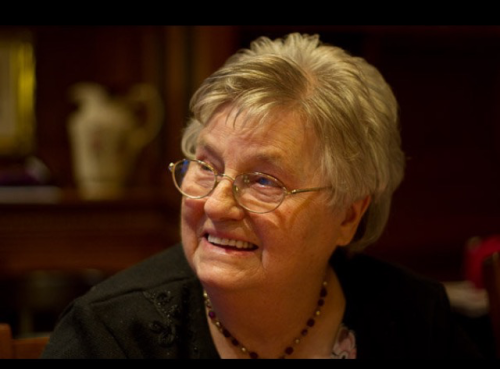Speechless
It’s not like it is on TV.
There are no bleeping heart monitors. Nurses are harried and busy and have twenty-four hours work to do in twelve. The overarching feeling is boredom with an undercurrent of sheer terror. My nana is awake only intermittently. She’s not wearing her glasses, or her dentures. She looks like a distorted version of herself, with her mouth drooping on one side to reveal the sores on her tongue. She hides her now-useless right arm under the covers, and makes loud noises of protest if you try to touch it. She cannot speak, though she tries her best.
The silence is the worst part. My nana always kept up a steady narration of her life. Everything was commented on, everything was scrutinised. If you caught her in the right moods – which are few and far between these days – she would tell you stories, tall tales about the Blitz and the Land Army and being a good Catholic girl marrying a bad Protestant boy.
The silence is the worst part.
She would accuse me sometimes of only coming round because I wanted pocket money. I would give my right arm to hear her berate and nag me. I would let the words leave me, I would let my mouth droop down, to hear once more the story of her brand new white buckskin shoes and how she ruined them by running away over a field from a rubbish date. I would give her my right arm to hear one last time her descriptions of TV shows where she can’t name half the characters.
I sit next to her. I lean on the railings of the bed. In two hours I have more physical contact with her than I have in the last few years. I stroke her hair. I hold her hand. I place my arms on her legs as they jerk and twitch. I speak to her. I don’t know how much she hears, how much she understands. I tell her my name over and over again. I read articles from Take a Break. Sing along to Smooth FM. I buy her a teddy. She leaves it under her good arm and I try to convince myself it has helped. My vigil continues.
The silence is the worst part.
I sip coffee, feel guilty that her mouth is dry and mine is not. I smile shyly at the nurses, consultants. The lady in the next bed offers me a compassionate word and a hand on my arm, and I feel like telling her not to be nice to me because I will fall apart. I wonder why she can talk while my nana cannot. When the tears come I stare out of the window until I can control myself. She must not see me cry. I say the serenity prayer. They talk about her frailties and I want to scream at them. Frail? My nana is not frail. Hell and high water never kept her down. I hear her voice tell me she used to hide behind the couch from the priest because the talk of fire and brimstone frightened her when she was small. I think about Eddie, the first man she loved, who is not my grandfather, whose sister did not like her. I remember standing next to her at the service for Land Girls in Liverpool Cathedral, and pray that she is still as proud to have me at her side today as she was then.
The silence is the worst part.
I try to keep up a continual chatter but find it nearly impossible. I try to retell the story of the buckskin shoes. I ask her if she wants me to just shush up and let her sleep. She doesn’t move or speak in response. I want to get into her bed and rock her like a child. I want to mother her. I want to tell her that everything is okay, but the words stick in my throat because I know that it is a lie. I want to tell her I love her but I am terrified that she won’t believe me. Her silence robs me of my ability to speak. I sit there thinking, my God, I’m a writer, I should be able to tell her a story. But what stories are there to tell to her now? She has heard them all, she has lived them all. She has had children, and grandchildren, and great-grandchildren. She has been married and widowed. She lived through a war, with dead bodies laid out on the table in the back parlour of her childhood home. What can I tell this woman, except that if I had known she would lose her ability to speak, I would have treasured her words all the more.
